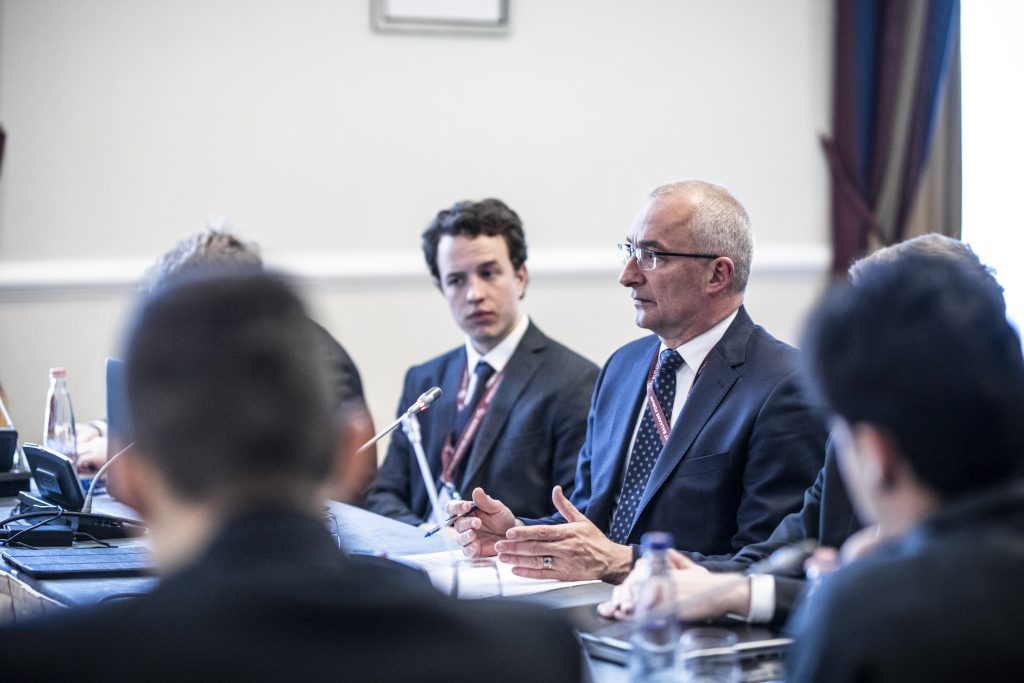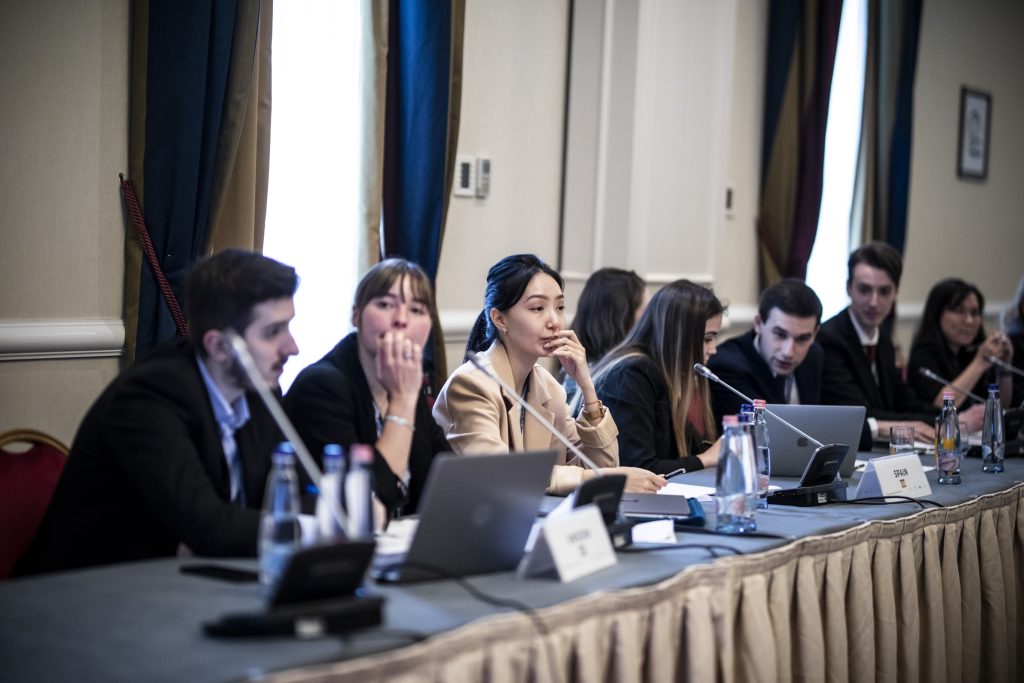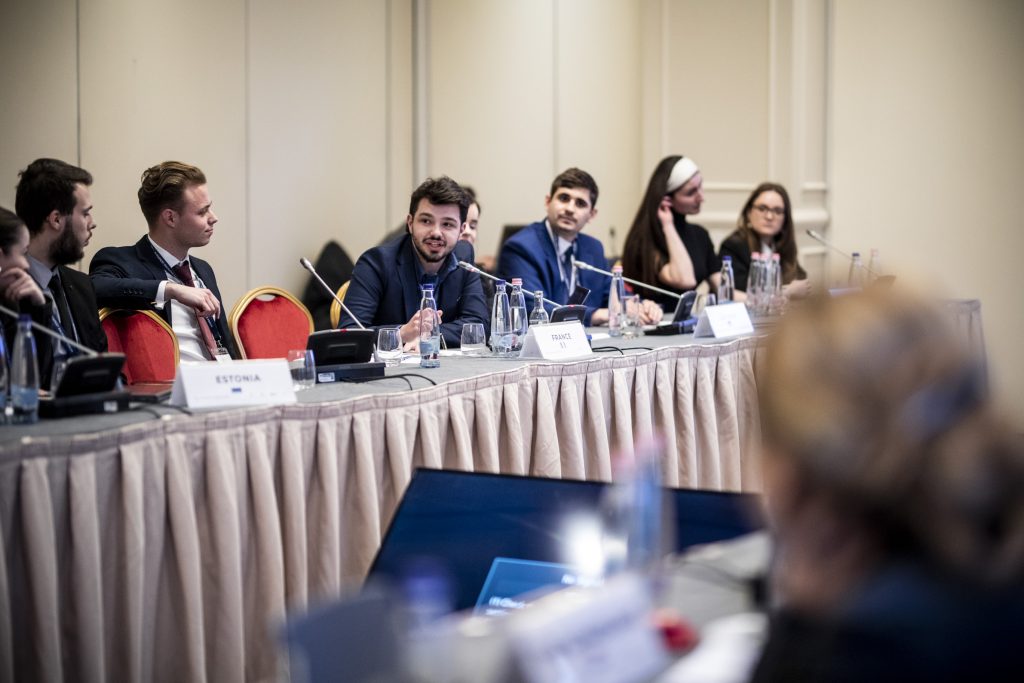On 9 March, simultaneously with the Budapest Balkans Forum, the Budapest Balkans Youth Forum took place. The aim of the program was to simulate a negotiation within the European Council where thirty participants–interns of the Institute for Foreign Affairs and Trade (IFAT), and the Konrad-Adenauer-Stiftung, scholarship holders of the Hungarian Diplomatic Academy and young professionals from the Western Balkans–represented ten EU member states and the High Representative. The topic of the negotiation dealt with the visa liberalisation of Kosovo.
The program started with an opening presentation on EU–Western Balkans relations and Hungarian interests by Péter Sztáray, State Secretary for Security Policy at the Ministry of Foreign Affairs and Trade of Hungary. Following the presentation of State Secretary Sztáray, Péter Stepper, Program Manager and Senior Research Fellow of IFAT hold an introductory lecture on EU decision-making processes.
In the beginning of the simulation, each country introduced its own position concering the visa liberalisation of Kosovo, followed by private exchanges between groups. Every country could afterwards propose textual changes to the draft proposal and also give feedback to the amendments. The formal part of the simulation ended with the voting session where participating member states agreed on the jointly prepared proposal and thus greenlighting the visa liberalisation of Kosovo.
After the end of the mock negotiation, a debriefing session was held where participants could reflect on the outcome of the simulation and share their experience on the Budapest Balkans Youth Forum.



